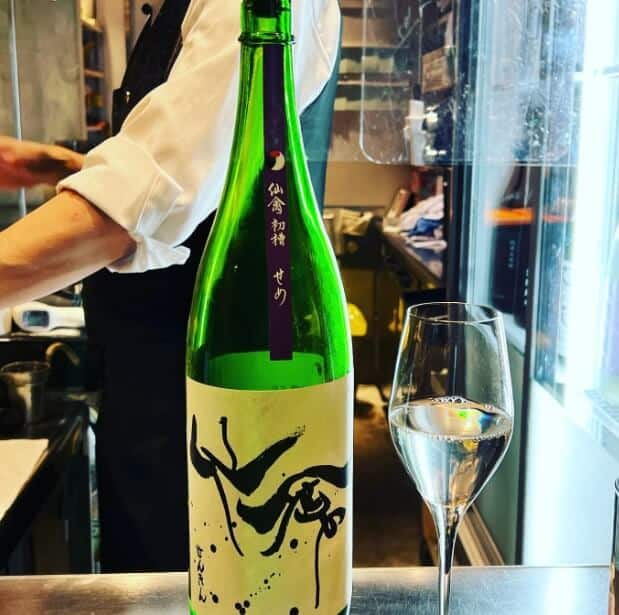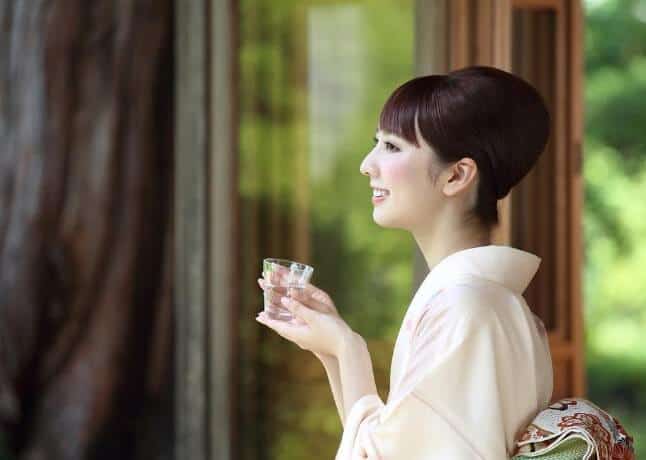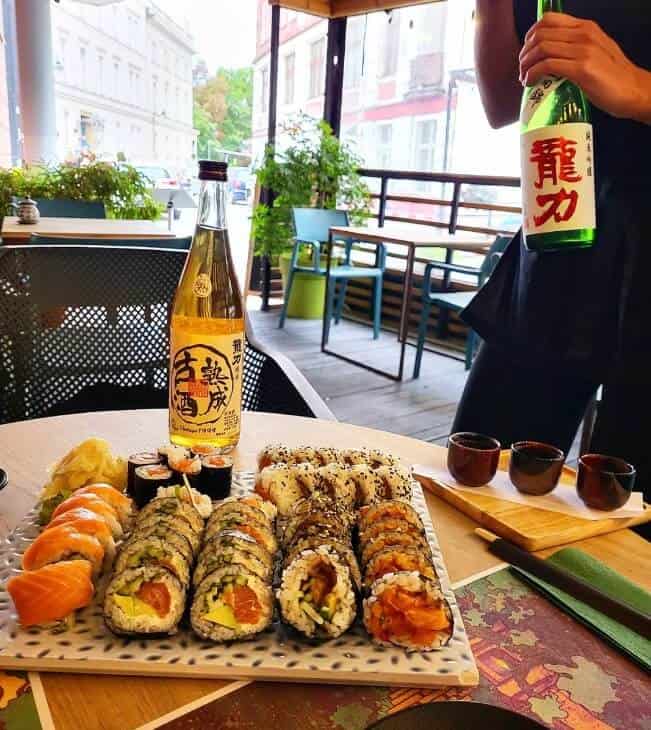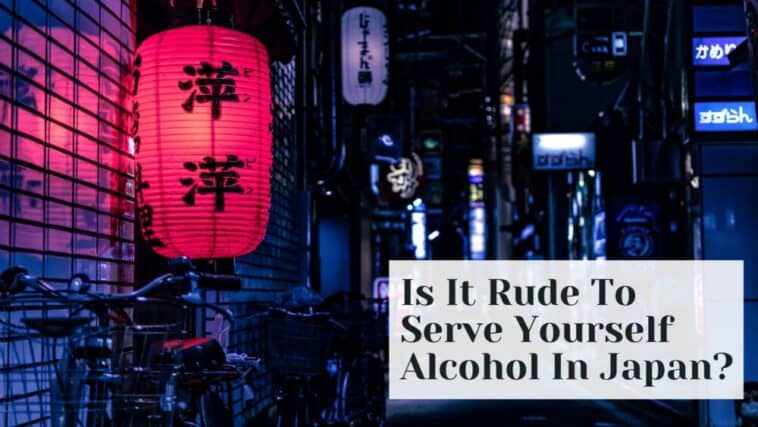Is it rude to serve yourself alcohol in Japan? Before you visit Japan, you need to know the answer to this question so you don’t offend the cultures of Japan. Read on to find out in detail when is it okay to serve yourself alcohol in Japan and when it’s not!
In Japan, pouring your own drink can be a social faux pas! Dive into Japanese drinking etiquette. Is reaching for the bottle a major mistake, or is there a polite way to quench your thirst? Learn the customs to avoid a cultural blunder.

Page Contents
Is It Rude To Serve Yourself Alcohol In Japan?
Yes, in Japan, it is considered rude to serve yourself alcohol. It’s a cultural custom to have others pour your drinks and to reciprocate the gesture.
- Related: Tipping In Japan | Why Is Tipping Rude In Japan?
- Related: Can Tourists Get Access To Japanese Only Restaurants?
- Related: Beginner’s Guide To Japanese Izakaya
Basic Japanese Etiquette on Serving Alcohol
To be clear, it won’t make you exactly a rude person but you’ll definitely raise a lot of eyebrows if locals catch you pouring yourself an alcoholic drink instead of letting the other people around you do it for you.

It also goes both ways as you’re expected to return the favor and pour the other people around you some drinks.

Again, this stems from Japan’s respectful culture and desire to be polite at all times no matter the situation or event. Even if it’s just a normal day out of drinking, the Japanese people still desire to be polite to other people as a way of respecting their culture.
To add to Japan’s drinking etiquette, the societal hierarchy of Japan could also be seen whenever the people around the table pour drinks to one another. Most of the time, the person with the highest status is served alcohol first followed by the others.
More commonly, elders and the head of the family are served a shot or a glass of alcohol first before anyone else as a sign of respect. Even though the person with a higher status in the table isn’t obligated to reciprocate, they still often do as a way to show gratitude to the person who poured them a drink.
Japan Socialization Norms
As mentioned earlier, Japanese culture is centered around being respectful and polite to everyone else at all times. This is not only seen in the social setting of drinking but in other situations as well.
There are different types of bowing in the Japanese culture to greet and it all depends on the degree of respect that you have for the person. It could be a casual bow at around 15 degrees to greet called ‘eshaku’, a more formal bow at 30 degrees called ‘keirei’, and the most formal and full bow at 45 degrees called ‘saikeirei’.

Bowing is just the start to many formalities and norms that the Japanese people are actively using to express their respect and politeness to others. In our previous articles, we also talked about all the ways to greet and say thanks in Japanese.
This just shows that Japanese culture values respect in all aspects and it can be seen and reflected in how the locals live their lives on a daily basis.
Japan Hospitality Vs The World
For Westerners curious about Japanese culture and are reading this article, it might be somewhat of a weird sight to see other people at the table pouring drinks for you out of respect and politeness.
There are definitely a number of key differences in Japanese hospitality that you’ll rarely see in other parts of the world. For starters, you won’t really see other people bowing to show respect in other countries, specifically Western countries since they’re more likely to shake hands.

Although bowing is also a thing for other Asian countries like Korea and Vietnam, what sets Japan apart from them is the degree of bowing you can do depending on how much respect you want to show to the person.
On the other hand, one might say that there are other countries in Asia as well to see other people at the table pour drinks for you but that’s a rare sight to see in the Western setting.
Basic Do’s And Don’ts When Dining With Japanese
Apart from serving yourself alcohol instead of letting the other people at the table do it for you, there are other things to avoid as well when dining in a Japanese home or in the Japanese setting. Don’t worry, we’ll tell you the right thing to do!
- Clean your hands before eating
- This one should be a giveaway not only in Japanese culture but in every culture in the world. Hygiene is very important before chowing down on quality food.
- Be prepared to sit on the floor for a meal
- It’s common in Japanese households and even in Japanese restaurants to sit on the floor for a meal. It’s a part of the culture that we all have to respect when we visit Japan.
- Don’t be shy to slurp on your food
- Slurping your ramen or your udon shows that you’re enjoying your meal a lot and it’s a compliment to the person who created and cooked the meal for you. Don’t be shy!
- Don’t blow your nose at the table
- It’s unhygienic to blow your nose at the table and risk the whole table of food to get contaminated with bacteria and viruses. Excuse yourself first to the bathroom if you have to.
- Pick up your bowl to finish off your meal
- There’s nothing wrong with using one hand to eat and one hand to lift the bowl to finish the food easier in Japan. It could also be a sign of respect and to show appreciation to the person who prepared the meal.
- Don’t pour soy sauce over white rice
- It might be a sign of disrespect to pour soy sauce in rice as the Japanese people take pride and value the process of creating rice and cooking it perfectly. Just dip the food you’re eating in soy sauce.
- Don’t put wasabi in your soy sauce
- Generally speaking, sushi already has the hint of saltiness needed to be eaten so a touch of wasabi is all you need to take it to the next level. However, you can dip the fish side of the sushi in the soy sauce.
- Eat everything if you can
- In Asian culture in general, leftovers aren’t appreciated and are a sign of disrespect to the person who took the time and effort to cook all the meals together.
- Punctuality is key
- The Japanese are very mindful and respectful of their time and the time of others. Be sure to arrive earlier than the reservation time or the time that your Japanese local told you to meet.
- Keep it neat and clean
- It takes effort and skill to create quality and delicious Japanese meals which is why it’s important to keep it clean and neat when eating.
- Be mindful how you work your chopsticks
- Standing your chopsticks upright with your plate or bowl is seen to be disrespectful among the locals because it indicates that you didn’t enjoy the meal.
Is It Rude To Serve Yourself Alcohol In Japan?
Even though it’s not exactly and necessarily rude to pour yourself an alcoholic drink in Japan, it might give off a negative impression with the local or family that is hosting you for some drinks. The best practice is to wait for someone to pour you a drink and say thanks in return.
It works both ways too as you have to always be keen and mindful about the glasses of the other people around you so that you could do the same thing and offer them a refill to their drink as you continue to have a great time with each other’s company.
We hope that this article has been helpful in determining whether it is rude to serve yourself alcohol in Japan or not.




